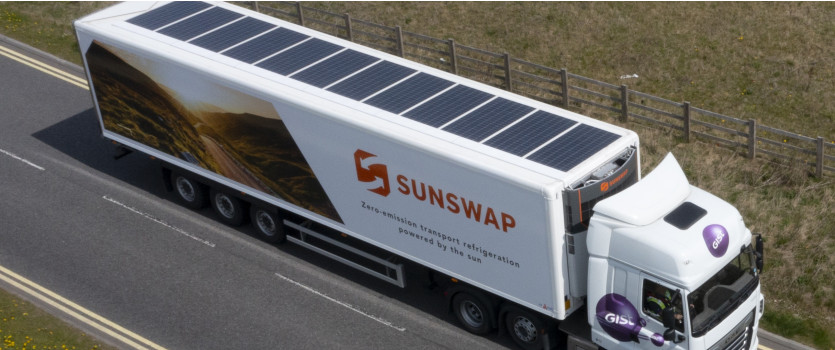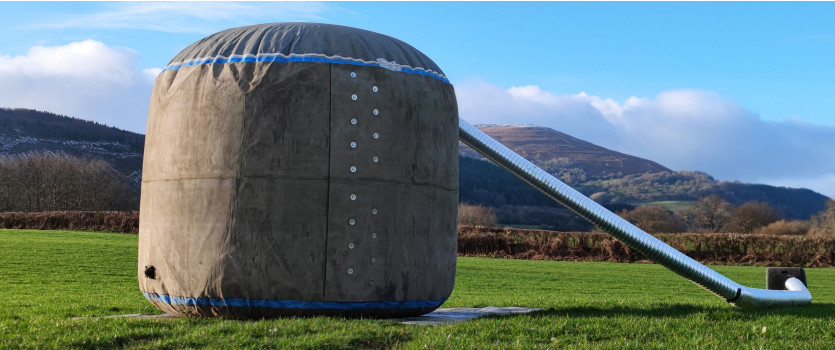 New Product Development (NPD) is a crucial driver of innovation and growth, helping companies remain competitive and adapt to changing consumer demands. From increasing market share to driving profitability, the role of NPD in business success is clear. At the same time, the importance of sustainability in business has become increasingly urgent as the climate crisis progresses.
New Product Development (NPD) is a crucial driver of innovation and growth, helping companies remain competitive and adapt to changing consumer demands. From increasing market share to driving profitability, the role of NPD in business success is clear. At the same time, the importance of sustainability in business has become increasingly urgent as the climate crisis progresses.
Consumers today are more informed and concerned about environmental issues than ever, prompting businesses to rethink their practices and prioritise sustainability. Companies that fail to address these concerns risk losing customer loyalty, market relevance and a pioneering role in the new economy.
A fundamental rethink is essential, moving from traditional linear models to circular and regenerative frameworks that consider the entire lifecycle of a product. Regenerative NPD encourages businesses to embrace innovative practices that restore and enhance ecosystems – moving from ‘do no harm’ to ‘make things better.’ By embracing this principle, businesses can unlock new opportunities for innovation while actively contributing to a more sustainable future for the planet and our society.
Sustainable vs. Regenerative
The distinction between sustainable and regenerative practices is crucial for understanding the future of NPD. Sustainability focuses on minimising negative impacts, such as reducing waste and carbon footprints. For instance, a sustainable product might be made from recycled materials and designed for energy efficiency, aiming to do less damage to the environment. This approach is often about ensuring that business operations do not deplete resources or cause ecological damage.
In contrast, regenerative practices aim to enhance and restore ecosystems. This means creating products that contribute positively to the environment, such as improving biodiversity or soil health. A regenerative product might not only utilise renewable resources but also actively contribute to the regeneration of ecosystems throughout its lifecycle. This shift towards regeneration encourages businesses to consider their role in improving the health of the planet and communities, promoting a more holistic approach to product development.
Made in Britain manufacturer, Floreon exemplifies regenerative product development with its breakthrough plant-based polymer, Therma-Tech, which is a flame-retardant, halogen-free material. By creating a fully recyclable bioplastic suitable for high-performance uses in sectors like construction, electronics and transport, the product promotes long-term environmental health through reduced carbon emissions and safer materials. Their innovation illustrates how regenerative NPD can create products that support ecosystem health while also meeting rigorous performance standards.

Floreon's innovative bioplastic material (pictured above).
For Business
From a business perspective, companies that successfully pioneer regenerative NPD will be well-placed to thrive in the future. In fact, studies show that businesses committed to sustainability often outperform their peers financially, attracting a growing segment of eco-conscious consumers who are willing to pay a premium for green products. NPD is the next stage.
Moreover, regenerative practices can stimulate innovation, opening new markets and opportunities for growth. By leveraging sustainable technologies and materials, businesses can differentiate themselves in a crowded marketplace, attracting consumers who prioritise ethical consumption. This not only enhances brand loyalty but also creates opportunities for partnerships with other companies that share similar values, fostering a collaborative ecosystem focused on sustainability.
Additionally, adopting regenerative NPD is also set to help businesses navigate the regulatory changes and market trends that are sure to emerge. As governments worldwide implement stricter environmental regulations, companies that are proactive in their sustainability efforts will be better positioned to comply and avoid potential penalties. By staying ahead of the curve, businesses can ensure their long-term viability and resilience in an ever-evolving market landscape.
For the Planet
Regenerative NPD aims beyond sustainability – to actively restore and revitalise ecosystems. By integrating renewable resources, reducing emissions, and aiming for closed-loop production, companies can develop products that benefit the environment over their entire lifecycle. This approach encourages innovation that not only lessens environmental impact but also supports broader planetary health by addressing resource scarcity and climate challenges.
Sunswap, the winner of 'Innovation of the Year' at this year’s Made in Britain Impact Awards, exemplifies regenerative NPD by aiming to decarbonise the global cold chain with its solar and battery-powered refrigeration units. By using solar power to replace diesel in temperature-controlled transport, Sunswap’s units reduce emissions and air pollution, setting a high standard for cleaner logistics in the food distribution sector. This pioneering technology exemplifies how manufacturing SMEs can innovate for both profitability and positive planetary impact.

Sunswap's transport refrigeration unit with zero tailpipe emissions, powered by a solar array on the trailer (pictured above).
For Society
Regenerative NPD also extends to societal benefits, focusing on the health, well-being, and resilience of communities. By prioritising social equity and addressing local needs, companies can create products that empower individuals and support sustainable development. This approach not only strengthens community resilience but also builds trust and fosters long-term relationships with consumers and stakeholders.
Deploy Tech, a 'Highly Commended' Impact Awards finalist, demonstrates this focus with its pioneering water storage solutions. By reducing concrete thickness from 150mm to just 8mm, this innovation has minimised both material use and carbon emissions, creating lightweight tanks that are easier to transport and install. Deploy Tech’s solutions are designed with community input, ensuring the water storage meets local needs. The holistic approach supports sustainable water management while fostering environmental and social resilience in communities, empowering them to manage resources sustainably.

Deploy Tech's pioneering water storage solution (pictured above).
Embracing the New Paradigm
To fully realise the potential of regenerative NPD, companies must embrace a new paradigm that prioritises collaboration and transparency. Engaging stakeholders, including customers, suppliers, and local communities, is essential for understanding their needs and incorporating their feedback into product development. This collaborative approach fosters a sense of shared ownership and responsibility, empowering stakeholders to participate actively in the innovation process.
By fundamentally rethinking their approaches, companies can create products that not only meet market demands but also contribute positively to society and the environment. Those who adopt regenerative practices will lead the charge in this new landscape, setting the standard for future business models.
As the urgency for action increases, businesses must embrace regenerative NPD to secure their place in a future where environmental and social value (ESV) is paramount. By committing to this new paradigm, companies can cultivate resilience, drive innovation, and ultimately, ensure long-term success in the global marketplace. The organisations that prioritise regenerative practices will be the ones that thrive in the new economy, shaping a more sustainable and equitable future for all.
Professor Chris Harrop OBE is Visiting Professor of Sustainable Business at the University of Huddersfield Business School and founding chairman of Made in Britain.
By Made in Britain 11 months ago | By Made in Britain